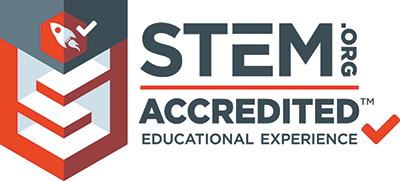
Expert AP Physics Tutors: Join AP Physics Online Tutoring program for AP Physics 1 & 2 Help
Master AP Physics 1 & 2 with Expert Tutors through our AP Physics Online Tutoring Program.
Our online tutors are ready to give you the AP Physics 1 help you need to achieve better scores.
The personalized tutoring program is set at a competitive pricing that is affordable for everyone.
Click the button below to book a free class with one of our live tutors.
Online AP Physics Tutoring
AP Physics provides students with an understanding of the principles of Physics while strengthening their foundation. The AP Physics course is divided into two distinct parts with a year’s prep time needed for most students. The time is essential for students to get answers to all their questions related to Science and learn the subject. Initially known as Physics B, it has been replaced with AP Physics 1 and AP Physics 2.
AP Physics 1 includes the Physics curriculum taught in the first semester of College. The course is Algebra-based and includes mechanics, power, work & energy. Students are also introduced to electrical circuits in the course of the year. They learn Physics in the classroom and through hands-on activities to develop a better understanding of theories.
AP Physics 2 is similar to the College course taught in the second semester. It is also Algebra-based and helps students to learn about electricity and magnetism; thermodynamics; fluid mechanics and atomic & nuclear physics.
You do not have to complete a Physics course in high school to enroll for the AP Physics course. It would certainly help if you learned geometry and Algebra II in school, however. The expert Physics tutors at eTutorWorld will help you by teaching you how to use basic trigonometric functions.
You can go on to AP Physics 2 after successfully taking the AP Physics exam or right after finishing the Physics 1 course. You can also choose to take AP Physics 2 directly after an equivalent introductory course in Physics. Learn with a LIVE Online tutor to make the course work easier. You will also learn to master the nuances of Pre-calculus by studying with qualified and experienced Physics tutors online.
Our AP Physics 1 and 2 Tutors

Kamal
AP Physics Tutor
Engineering Graduate in Mechanics
1,000+ hrs of Tutoring
I’m Kamal, a passionate and dedicated online tutor. With a Bachelor’s degree in Mechanical Engineering, I have been serving as a tutor for the past two decades. I have experience teaching students both offline and online. Mathematics and Mechanics (Physics) are my favorite subjects to teach, as I find them fascinating and love to delve into the intricacies of these topics. When I’m not teaching, you can find me engrossed in books, tending to my garden, or enjoying some soulful music.

Shruthy
AP Physics Tutor
MSc Physics, MPhil, BEd
5,000+ hrs of Tutoring
I’m Shruthy, a tutoring enthusiast from eTutorWorld. I’ve been teaching for the last 10 years. I am a Master of Philosophy and Degree in Education holder, and I also have a Masters in Physics. I enjoy teaching various subjects, covering grades 07 to 12, including specialized programs like AP and Enrichment. My subjects include Physical Science, Physics, Algebra 1, Algebra 2, Geometry, Math Essentials, Trigonometry, Pre-Calculus, Physics 1 and 2, Physics C, and Math. I make sure that learning is engaging and understandable, whether in basic math or physics.
AP Physics 1
AP Physics 1 course is divided into 10 units for ease of study. Your teacher or tutor may organize the content in the manner they find fit. You are advised to devote the right amount of time for each topic by glancing at the percentage of questions expected from each unit. This will help you in acing the exam.
| AP Physics 1 | Percentage of Qs Expected | Multiple Choice Questions | Free Response Questions | Approx number of Sessions |
|---|---|---|---|---|
| Unit 1: Kinematics | 10% to 16% | 15 | 2 | 14 |
| Unit 2: Dynamics | 12% to 18% | 40 | 2 | 15 |
| Unit 3: Circular Motion and Gravitation | 4% to 6% | 40 | 2 | 7 |
| Unit 4: Energy | 16% to 24% | 30 | 2 | 16 |
| Unit 5: Momentum | 10% to 16% | 35 | 2 | 12 |
| Unit 6: Simple Harmonic Motion | 2% to 4% | 20 | 2 | 4 |
| Unit 7: Torque and Rotational Motion | 10% to 16% | 40 | 2 | 12 |
| Unit 8: Electric Charge and Electric Force | 4%-6% | 15 | 2 | 4 |
| Unit 9: DC Circuits | 6%-8% | 30 | 2 | 4 |
| Unit 10: Mechanical Waves and Sound | 12%-16% | 30 | 2 | 12 |
Unit 1: Kinematics (Multiple-Choice: ~15 questions | Free-Response: 2 questions)
1.1 Position, Velocity and Acceleration
1.2 Representations of Motion
Unit 2: Dynamics (Multiple-Choice: ~40 questions | Free-Response: 2 questions)
2.1 Systems
2.2 The Gravitational Field
2.3 Contact Forces
2.4 Newton’s First Law
2.5 Newton’s Third Law and Free-Body Diagrams
2.6 Newton’s Second Law
2.7 Applications of Newton’s Second Law
Unit 3: Circular Motion and Gravitation (Multiple-Choice: ~40 questions | Free-Response: 2 questions)
3.1 Vector Fields
3.2 Fundamental Forces
3.3 Gravitational and Electric Forces
3.4 Gravitational Field/Acceleration Due to Gravity on Different Planets
3.5 Inertial vs. Gravitational Mass
3.6 Centripetal Acceleration and Centripetal Force
3.7 Free-Body Diagrams for Objects in Uniform Circular Motion
3.8 Applications of Circular Motion and Gravitation
Unit 4: Energy (Multiple-Choice: ~30 questions | Free-Response: 2 questions)
4.1 Open and Closed Systems: Energy
4.2 Work and Mechanical Energy
4.3 Conservation of Energy, the Work Energy Principle, and Power
Unit 5: Momentum (Multiple-Choice: ~35 questions | Free-Response: 2 questions)
5.1 Momentum and Impulse
5.2 Representations of Changes in Momentum
5.3 Open and Closed Systems: Momentum
5.4 Conservation of Linear Momentum
Unit 6: Simple Harmonic Motion (Multiple-Choice: ~20 questions | Free-Response: 2 questions)
6.1 Period of Simple Harmonic Oscillators
6.2 Energy of a Simple Harmonic Oscillator
Unit 7: Torque and Rotational Motion (Multiple-Choice: ~40 questions | Free-Response: 2 questions)
7.1 Rotational Kinematics
7.2 Torque and Angular Acceleration
7.3 Angular Momentum and Torque
7.4 Conservation of Angular Momentum
Unit 8: Electric Charge and Electric Force (Multiple-Choice: ~15 questions | Free-Response: 2 questions)
8.1 Conservation of Charge
8.2 Electric Charge
8.3 Electric Force
Unit 9: DC Circuits (Multiple-Choice: ~30 questions | Free-Response: 2 questions)
9.1 Definition of a Circuit
9.2 Resistivity
9.3 Ohm’s Law, Kirchhoff’s Loop Rule (Resistors in Series and Parallel)
9.4 Kirchhoff’s Junction Rule, Ohm’s Law (Resistors in Series and Parallel)
Unit 10: Mechanical Waves and Sound (Multiple-Choice: ~30 questions | Free-Response: 2 questions)
10.1 Properties of Waves
10.2 Periodic Waves
10.3 Interference and Superposition (Waves in Tubes and on Strings)
AP Physics 2
AP Physics 2 consists of 7 different units that includes various topics. The subjects are included in College curriculum of students taking the second semester. eTutorWorld’s expert online tutors will mentor you closely as you try to understand the concepts and develop the required skills. The percentage of questions expected from each unit is as follows.
| AP Physics 2 | Percentage of Qs Expected | Multiple Choice Questions | Free Response Questions | Approx number of Sessions |
|---|---|---|---|---|
| Unit 1: Fluids | 10% to 12% | 40 | 2 | 12 |
| Unit 2: Thermodynamics | 12% to 18% | 60 | 2 | 17 |
| Unit 3: Electric Force, Field, and Potential | 18% to 22% | 75 | 2 | 21 |
| Unit 4: Electric Circuits | 10% to 14% | 40 | 2 | 12 |
| Unit 5: Magnetism and Electromagnetic Induction | 10% to 12% | 35 | 2 | 12 |
| Unit 6: Geometric and Physical Optics | 12% to 14% | 50 | 2 | 14 |
| Unit 7: Quantum, Atomic, and Nuclear Physics | 10% to 12% | 55 | 2 | 12 |
Unit 1: Fluids (Multiple-Choice: ~40 questions | Free-Response:2 questions)
1.1 Fluid Systems
1.2 Density
1.3 Fluids: Pressure and Forces
1.4 Fluids and Free-Body Diagrams
1.5 Buoyancy
1.6 Conservation of Energy in Fluid Flow
1.7 Conservation of Mass Flow Rate in Fluids
Unit 2: Thermodynamics (Multiple-Choice: ~60 questions | Free-Response: 2 questions)
2.1 Thermodynamic Systems
2.2 Pressure, Thermal Equilibrium, and the Ideal Gas Law
2.3 Thermodynamics and Forces
2.4 Thermodynamics and Free-Body Diagrams
2.5 Thermodynamics and Contact Forces
2.6 Heat and Energy Transfer
2.7 Internal Energy and Energy Transfer
2.8 Thermodynamics and Elastic Collisions: Conservation of Momentum
2.9 Thermodynamics and Inelastic Collisions:Conservation of Momentum
2.10 Thermal Conductivity
2.11 Probability, Thermal Equilibrium, and Entropy
Unit 3: Electric Force, Field, and Potential (Multiple-Choice: ~75 questions | Free-Response: 2 questions)
3.1 Electric Systems
3.2 Electric Charge
3.3 Conservation of Electric Charge
3.4 Charge Distribution— Friction, Conduction, and Induction
3.5 Electric Permittivity
3.6 Introduction to Electric Forces
3.7 Electric Forces and Free-Body Diagrams
3.8 Describing Electric Force
3.9 Gravitational and Electromagnetic Forces
3.10 Vector and Scalar Fields
3.11 Electric Charges and Fields
3.12 Isolines and Electric Fields
3.13 Conservation of Electric Energy
Unit 4: Electric Circuits (Multiple-Choice: ~35 questions | Free-Response: 2 questions)
4.1 Definition and Conservation of Electric Charge
4.2 Resistivity and Resistance
4.3 Resistance and Capacitance
4.4 Kirchhoff’s Loop Rule
4.5 Kirchhoff’s Junction Rule and the Conservation of Electric Charge
Unit 5: Magnetism and Electromagnetic Induction (Multiple-Choice: ~35 questions | Free-Response: 2 questions)
5.1 Magnetic Systems
5.2 Magnetic Permeability and Magnetic Dipole Moment
5.3 Vector and Scalar Fields
5.4 Monopole and Dipole Fields
5.5 Magnetic Fields and Forces
5.6 Magnetic Forces
5.7 Forces Review
5.8 Magnetic Flux
Unit 6: Geometric and Physical Optics (Multiple-Choice: ~50 questions | Free-Response: 2 questions)
6.1 Waves
6.2 Electromagnetic Waves
6.3 Periodic Waves
6.4 Refraction, Reflection, and Absorption
6.5 Images from Lenses and Mirrors
6.6 Interference and Diffraction
Unit 7: Quantum, Atomic, and Nuclear Physics (Multiple-Choice: ~55 questions | Free-Response: 2 questions)
7.1 Systems and Fundamental Forces
7.2 Radioactive Decay
7.3 Energy in Modern Physics (Energy in Radioactive Decay and E = mc 2)
7.4 Mass–Energy Equivalence
7.5 Properties of Waves and Particles
7.6 Photoelectric Effect
7.7 Wave Functions and Probability
Options
There are multiple courses available for students hoping to take an Advanced Placement exam in Physics. It is natural to be puzzled about the best course to take or the order of taking multiple exams. You need to be guided by an expert for picking the right course. Feel free to turn to a Physics tutor at eTutorWorld and prepare for the exams right away. Here are a few choices to consider…
It is best to go for a regular Physics course in High School first. This will help you to understand the basic concepts. Next, take AP Physics 2 and prepare yourself for College.
Take AP Physics 1 if you do not wish to pursue Physics in College. Learning the fundamentals of Physics and taking the exam successfully will give you an edge in the competition to your dream college. The College Board recommends AP Physics 1 course for students keen on studying Pre-Med, life sciences or Geology. You can always go ahead and take AP Physics 2 afterwards when you want to continue studying Physics in College.
No credit card required. No obligation to purchase
Pricing for Online Tutoring
1 Session
- 1 Month Validity
5 Sessions
- 1 Month Validity
10 Sessions
(Most Popular)- 3 Months Validity
20 Sessions
- 4 Months Validity
50 Sessions
- 6 Months Validity
AP Physics 1 & 2 Worksheets
Take the eTutorWorld Advantage
College Prep- AP Physics course can be challenging for High school students since it is equivalent to an introductory college course. Do not be pressurized to do everything at once. Enroll for on-demand, one-to-one sessions with eTutorWorld experts and learn at your convenience.
Improve GPA– Get a good GPA score in AP Physics by taking the exam after completing Test prep. eTutorWorld tutors are experts in Physics and can guide you through the entire course. This will help you gain admission in the undergrad course of your choice.
Learn to Love Physics– Science, particularly Physics will be made easy once you master Physics fundamentals by gaining a strong understanding of its nitty-gritties. Practice until you are perfect with the help of well designed practice sheets provided after every tutoring session by eTutorWorld.
Access Recordings – You can also go through previous sessions by accessing the recordings for 30 days from the scheduled session date. This will help you to recall concepts and learn hose points that you may have missed during the tutoring session.
Save Money– Ace AP Physics test by learning systematically with affordable, seasoned eTutorWorld tutors and earn a score of 4. This will help you reduce College tuition fees by claiming College credit.
AP Physics 1 & 2 Tutoring: Frequently Asked Questions (FAQs)
AP Physics 1 & 2: What’s the difference?
How Do I prepare for AP Physics exam?
Will I have to pay from day 1?
No! You get the opportunity to book a FREE CLASS
Meet our tutors and interact on a live session. This will enable you to understand our methodology. You don’t have any obligation to book the free class. Decide whether this works for you before you enroll for more sessions.
What is format of the AP Physics 1 exam?
What is format of the AP Physics 2 exam?
Book a free class with an eTutorWorld expert and experience Learning by Design with experienced and expert mentors. You can book this class at your preferred date and time.
No credit card required. No obligation to purchase
Benefits of AP Physics Tutoring at eTutorWorld
Personalized Approach
Our tutors create customized lesson plans based on diagnostic tests to cater to the specific learning needs of every kid. We understand that every child has different strengths, and our tutors create a plan that is suited just right for your child.
Customized Lesson Plans
Before the tutoring sessions begin, we conduct Diagnostic Tests to assess students’ skills and abilities. Our tutors use this test to gauge the learning needs of every student to identify areas that need to be focused in their customized learning plans.
Regular Assessments
Regular assessments are crucial in gauging a students’ progress with the lesson plan. After all the lessons and courses, a review of the improvement is done and is also shared with the parents.
Highly Qualified Tutors
Every tutor at eTutorWorld has 400 hours of teaching experience and subject matter expertise. We are responsible for each student’s progress and hence take care in selecting tutors.
Private Tutoring
Private tutoring offers undivided attention by eliminating distractions. With 1:1 tutoring, you can ask for any help or doubt from our tutors—private tutoring for better focus, transparency & performance.
Affordable Tutoring
Quality education should not be expensive. That’s why we deliver affordable tutoring to all our students. Each tutoring session has 50 to 55 minutes of learning time & is affordable for all students.
Interactive & Flexible Session
Interactive online tutoring has never been this enjoyable. Here, students enjoy the latest teaching methods and technology that make learning interactive and fun. All our learning technologies are modern and easy-to-use.
Curated Worksheets
Access curated practice tests & worksheets. Practice material cements the understanding of the topics and concepts learned during the tutoring sessions. These curated Worksheets are designed by expert tutors to help students revise the concepts clearly.
24×7 Support
Get 24X7 support through our number (628)-272-0788. A support team is always ready to help you with any technical or other issues. Any query or questions can be resolved quickly from the comfort of your home.
WHAT OUR CUSTOMERS HAVE TO SAY
It was my first experience with an online tutor for my child. During this pandemic it was basically the only way to go. I made the best choice when I choose etutorworld. The tutor was awesome and patient with her and he provided her with ways to study. I will recommend etutorworld to anyone that is seeking to adhere to social distancing and even for future studies. GREAT JOB!!
Aleksey Gaziev
Very good structure and flow of the sessions, materials used are also good - overall very positive experience.
Veronica S Lennon
Excellent quality and service from both an academic and as admin point of view!
Shaivi Shah
Kind, well qualified and very responsible teacher. Would like to try other subjects and want to have my second child tutored. Great value, too.
Leah Dixon
Test names and other trademarks are the property of their respective trademark holders. None of them are affiliated with eTutorWorld Corporation.
IN THE NEWS

Our mission is to provide high quality online tutoring services, using state of the art Internet technology, to school students worldwide.
Online test prep and practice
SCAT
CogAT
SSAT
ISEE
PSAT
SAT
ACT
AP Exam
Science Tutoring
Physics Tutoring
Chemistry Tutoring
Biology Tutoring
Math Tutoring
Pre-Algebra Tutoring
Algebra Tutoring
Pre Calculus Tutoring
Calculus Tutoring
Geometry Tutoring
Trigonometry Tutoring
Statistics Tutoring
Quick links
Free Worksheets
Fact sheet
Sales Partner Opportunities
Parents
Passive Fundraising
Virtual Fundraising
Our Expert Tutors
Safe and Secure Tutoring
Interactive Online Tutoring
After School Tutoring
Elementary School Tutoring
Middle School Tutoring
High School Tutoring
Home Work Help
Math Tutors New York City
Press
©2022 eTutorWorld Terms of use Privacy Policy Site by Little Red Bird
©2022 eTutorWorld
Terms of use
Privacy Policy
Site by Little Red Bird







